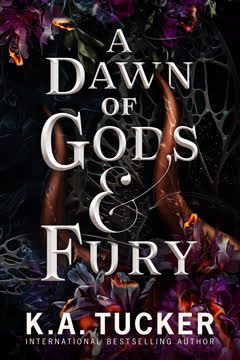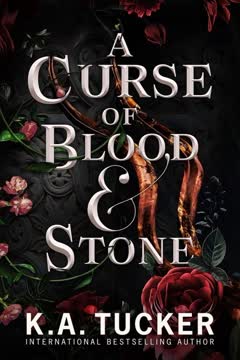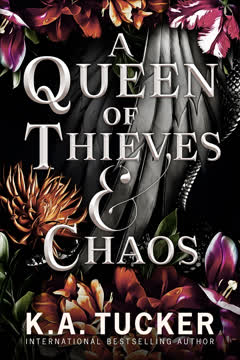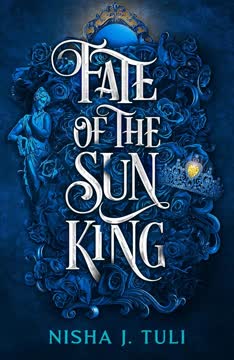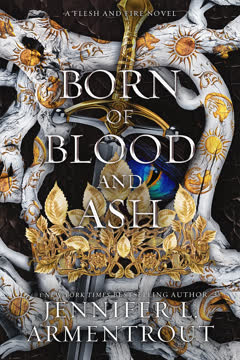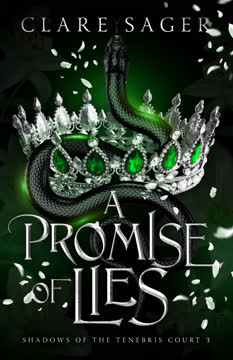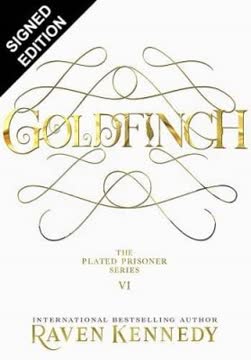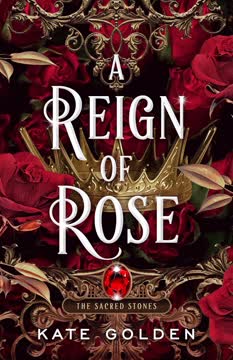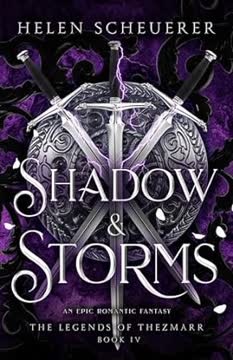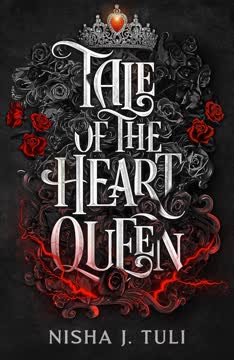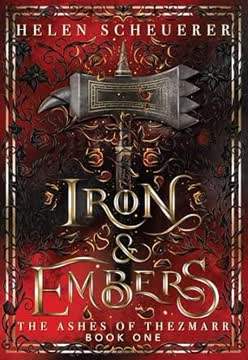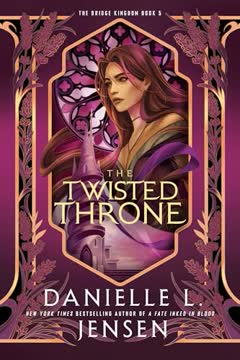Plot Summary
1. Rebellion and Ruin
The story opens with Islor in turmoil: rebellion rages, the royal family is fractured, and the city of Cirilea is ablaze. Princess Annika, exiled and desperate, is forced to flee with her captor Tyree, while Zander, the exiled king, and Romeria, the new queen of Ybaris, face the aftermath of a devastating battle at the rift. The world is on the brink, with mortals and immortals alike suffering under the weight of ancient curses and new betrayals. The sense of loss and uncertainty is palpable, as each character is forced to confront the consequences of their choices and the shifting tides of power.
2. Fates Unleashed
As Hudem's moon rises, the blood curse that has plagued Islor for millennia is suddenly broken. The nymphs, long banished, return to the world, bringing with them both healing and chaos. The characters are left reeling as their fundamental natures shift—immortals lose their thirst for blood, and the balance of power is upended. The return of the nymphs signals the opening of the Nulling, a realm of monsters and fates, and the beginning of a new age where prophecy, magic, and destiny collide. The emotional weight of transformation and the fear of the unknown drive the characters forward.
3. Rift and Reckoning
The rift between realms spews forth horrors from the Nulling, forcing former enemies—Islor, Ybaris, and Mordain—to unite. Romeria, now queen, and Zander, the exiled king, lead a desperate defense alongside dragons and casters. The battle is brutal, with casualties on all sides, but the shared struggle for survival forges new bonds. The emotional core is the realization that old hatreds must be set aside for the greater good, and that unity is the only hope against the darkness rising from the rift.
4. Bloodlines and Betrayals
The Ascelin siblings—Zander, Atticus, and Annika—are scattered by war and betrayal. Atticus, captured and humiliated, faces his own failures and the consequences of his ambition. Annika, forced into exile with Tyree, must confront her hatred and the possibility of forgiveness. Zander, torn between duty and love, struggles to reclaim his throne and protect those he cares for. The emotional tension is heightened by secrets, regrets, and the ever-present threat of annihilation.
5. Dragons Ascend
The arrival of dragons—Caindra, Valk, and Xiaric—shifts the balance of power. Their presence is both awe-inspiring and terrifying, as they become symbols of hope and destruction. Romeria's unique bond with Caindra cements her role as a leader, while the dragons' intervention saves countless lives. The emotional resonance is the sense of wonder and the realization that the world is far older and more mysterious than anyone imagined.
6. The Nulling Opens
With the nymphs' return, the Nulling is breached, unleashing Saur'goth armies and daaknar demons. Malachi, the Fate of Fire, seizes a mortal body and claims Islor's throne, wielding unimaginable power. Sofie, the key caster, is torn between love and loyalty as she becomes Malachi's unwilling queen. The emotional core is terror and helplessness, as the characters realize they are pawns in a cosmic game.
7. Alliances Forged, Trusts Broken
Desperate times force Islor, Ybaris, Mordain, and even Kier to form an uneasy alliance. Old wounds fester, and betrayals linger, but the looming threat of Malachi's army leaves no choice. Romeria's leadership is tested as she navigates political intrigue, the demands of prophecy, and the burden of being the Queen for All. The emotional arc is one of reluctant hope and the pain of necessary compromise.
8. The Queen for All
Romeria embraces her role as the prophesied Queen for All, wielding the power of the nymphs and the fates. She is forced to make impossible choices, including bargaining with gods and risking her own life for the survival of the realms. Her journey is one of self-discovery, courage, and the acceptance of responsibility. The emotional weight is the loneliness of leadership and the cost of greatness.
9. The Fate of Fire
Malachi, possessing Sofie's husband Elijah, unleashes his Saur'goth army and daaknar demons, bringing Islor to the brink of destruction. His cruelty is boundless, using mortals as shields and executing dissenters in public spectacles. Sofie, trapped and tormented, clings to the hope of freeing Elijah, even as she is forced to commit atrocities. The emotional core is horror, grief, and the desperate search for redemption.
10. The Price of Power
As the war reaches its climax, Romeria is forced to summon the fates and accept the cost of their aid. Aminadav offers her a horn that will end the war but demands a sacrifice. The emotional tension is the agony of choice—who or what is worth giving up for peace? The characters grapple with guilt, love, and the knowledge that victory may come at an unbearable price.
11. The Horn's Sacrifice
In the darkest hour, as Malachi's army overruns Lyndel and all hope seems lost, Romeria blows Aminadav's horn. The magic annihilates everything born of the Nulling—Saur'goths, daaknar, even the dragons Valk and Xiaric, and those touched by the fates. The cost is immense, and Romeria expects to die, but she survives, forever changed. The emotional impact is devastation, relief, and the bittersweet knowledge that salvation always demands a price.
12. The End of Malachi
Malachi is finally destroyed—not by a hero's blade, but by the daaknar he created and Sofie's final act of mercy. Sofie and Elijah die together, ending centuries of suffering. The world is left to pick up the pieces, haunted by the memory of the Fate of Fire and the scars he left behind. The emotional arc is one of closure, sorrow, and the hope for healing.
13. Aftermath and New Dawn
With Malachi gone and the Nulling sealed, the survivors rebuild. Zander reclaims his throne, Romeria rules as Queen for All, and alliances are reforged. The blood curse is gone, mortals and immortals begin to coexist, and the realms look to a future shaped by hard-won unity. The emotional resonance is hope, tempered by grief and the knowledge that peace is always fragile.
14. The Lost and the Found
Annika and Tyree, presumed dead, endure exile, betrayal, and the perils of Udrel. Their relationship evolves from hatred to love as they face monsters, conjurers, and the truth about their own natures. Their story is one of resilience, forgiveness, and the search for belonging. The emotional core is the healing of old wounds and the forging of a new family.
15. The Kal'ana's Choice
Annika is chosen as the kal'ana, a sacrificial queen meant to save Udrel from its curse. With Tyree and the conjurer Destry, she defies fate, confronts Queen Neilina's legacy, and ultimately escapes, refusing to be anyone's pawn. Their journey is a testament to agency, love, and the refusal to accept a destiny written by others. The emotional arc is empowerment and the triumph of will.
16. The Light and the Shadow
The story explores the ancient struggle between the light (nymphs/conjurers) and the shadow (fates/casters). The history of the realms is revealed: mystics, conjurers, and the wars that shaped the world. The characters learn that true balance requires sacrifice, and that every act of magic has consequences. The emotional resonance is awe, humility, and the acceptance of mystery.
17. The Last Battle
The final battle for Islor is fought with every weapon, alliance, and ounce of magic the realms can muster. Dragons, casters, mortals, and immortals stand together against Malachi's endless army. The cost is staggering—lives lost, cities destroyed, and innocence shattered. But in the end, unity and sacrifice prevail, and the world is saved from oblivion. The emotional core is courage, loss, and the enduring power of hope.
18. Peace, at a Price
In the aftermath, the survivors rebuild, mourn, and look to the future. Old systems are dismantled, new alliances are forged, and the scars of war remain. Romeria and Zander find love and purpose, Annika and Tyree choose each other, and the realms begin to heal. But the memory of sacrifice lingers, and the knowledge that peace is always bought with pain. The emotional arc is bittersweet triumph, the promise of renewal, and the wisdom that comes from surviving the end of the world.
Characters
Romeria
Romeria is the heart of the story—a thief from another world, thrust into the body of a Ybarisan princess and forced to become the Queen for All. Her journey is one of self-discovery, courage, and sacrifice. She is torn between love (for Zander), duty, and the crushing weight of prophecy. Romeria's psychological arc is defined by her struggle to accept responsibility, her empathy for the suffering of others, and her willingness to pay any price to save the realms. Her relationships—with Zander, Annika, and the nymphs—are complex, marked by trust, betrayal, and ultimately, deep loyalty. She embodies the theme that true leadership is lonely, costly, and defined by the choices no one else can make.
Zander
Zander is the noble, principled former king of Islor, haunted by his failures and the betrayals of those closest to him. His love for Romeria is both his strength and his vulnerability. Zander's psychological journey is one of learning to trust, to forgive, and to lead not just with strength but with compassion. His relationships—with his siblings, his commanders, and Romeria—are fraught with tension, but ultimately, he is the anchor that holds the alliance together. Zander's arc is about reclaiming his throne not just for power, but to build a better world.
Annika
Annika begins as a proud, sometimes petulant princess, but her exile and ordeals force her to grow. Her relationship with Tyree evolves from hatred to love, mirroring her journey from vengeance to forgiveness. Annika's psychological arc is about letting go of old wounds, embracing vulnerability, and choosing her own destiny. Her bond with her brothers and her eventual acceptance of Romeria are central to her growth. Annika represents the possibility of healing and the courage to start anew.
Tyree
Tyree is a Ybarisan prince, once an antagonist, now a partner to Annika. His journey is one of atonement—haunted by his family's crimes, he seeks redemption through love and sacrifice. Tyree's psychological complexity lies in his struggle with guilt, his fierce loyalty, and his willingness to risk everything for Annika. His arc is about breaking cycles of hatred and choosing love over vengeance.
Atticus
Atticus is Zander's brother, whose ambition and insecurity lead to betrayal and regret. Captured and humbled, Atticus must confront the consequences of his actions and find a new purpose. His psychological arc is about humility, reconciliation, and the search for meaning beyond power. His relationships—with Zander, Annika, and Gracen—are fraught but ultimately redemptive. Atticus embodies the theme that forgiveness is possible, even for the gravest of sins.
Sofie
Sofie is a powerful caster, driven by love for her husband Elijah and manipulated by Malachi. Her arc is one of tragedy—forced to commit atrocities, she is both victim and perpetrator. Sofie's psychological journey is about the cost of obsession, the pain of loss, and the hope for redemption. Her relationship with Elijah/Malachi is the emotional core of her story, culminating in a final act of mercy and release.
Malachi
Malachi is the primary antagonist—a fate who possesses Elijah's body and seeks to rule the realms through terror and manipulation. He is both charismatic and monstrous, embodying the dangers of unchecked power and the allure of godhood. Malachi's psychological complexity lies in his need for control, his disdain for mortals, and his inability to understand love or sacrifice. He is a force of nature, but ultimately undone by the very monsters he creates.
Lucretia
Lucretia is the sylx, a shape-shifting, enigmatic being who serves the nymphs and later Romeria. Her motivations are mysterious, her loyalties fluid, but she is instrumental in gathering information, saving lives, and influencing the outcome of the war. Psychologically, Lucretia is both playful and dangerous, embodying the theme that not all power is easily categorized as good or evil.
Agatha
Agatha is the wise, elderly scribe who guides Romeria and the alliance through the labyrinth of prophecy and history. Her role is that of mentor, historian, and moral compass. Psychologically, Agatha is driven by duty, curiosity, and a deep sense of responsibility for the future. Her relationship with the scribes, Romeria, and the casters is marked by trust and the burden of knowledge.
Destry
Destry is a former Azyr conjurer from Udrel, haunted by her past and her powers. She aids Annika and Tyree in their escape, using her abilities to manipulate the light and the creatures of her realm. Psychologically, Destry is marked by guilt, resilience, and a desire for belonging. Her arc is about finding purpose in helping others and accepting her own worth.
Plot Devices
Prophecy and Destiny
The narrative is driven by ancient prophecies, visions, and the belief that certain individuals are chosen by fate or the nymphs. This device creates tension between destiny and free will, as characters struggle to fulfill, resist, or reinterpret the roles assigned to them. The prophecy of the Queen for All, the return of the nymphs, and the opening of the Nulling all serve as catalysts for action and self-discovery.
Dual Worlds and Body-Swapping
The story uses the device of body-swapping (Romeria's soul in a new body) and parallel worlds (the old world and Islor) to explore themes of identity, belonging, and transformation. This device allows for deep psychological exploration and the blurring of boundaries between self and other, past and present.
Sacrifice and Bargains with Gods
The recurring motif of bargains with gods—nymphs, fates, and conjurers—underscores the theme that magic and power are never free. Every act of summoning, every use of a token, and every plea for aid comes with consequences, often unforeseen and devastating. The horn of Aminadav, the summoning of the fates, and the deals struck with nymphs all drive the plot toward its climactic sacrifices.
Shifting Alliances and Political Intrigue
The narrative structure is built on shifting alliances, betrayals, and the necessity of compromise. Former enemies must work together, and old friends become adversaries. This device heightens tension, creates opportunities for character growth, and reflects the complexity of real-world politics and war.
Foreshadowing and Symbolism
The story is rich with foreshadowing—visions, dreams, and cryptic warnings from gods and seers. Symbols such as the crown, the horn, the nymph doors, and the double crescent moon recur throughout, linking characters and events across time and space. These devices deepen the emotional resonance and reward attentive readers.
Analysis
A Dawn of Gods & Fury is a sweeping epic that explores the collision of fate, free will, and the cost of power. At its core, the novel is about the necessity of unity in the face of annihilation, the pain of sacrifice, and the hope that can be found even in the darkest hour. K.A. Tucker weaves a complex tapestry of characters—each flawed, each searching for meaning—against a backdrop of gods, monsters, and ancient magic. The story interrogates the nature of leadership, the burden of prophecy, and the price of peace. It refuses easy answers: every victory is bittersweet, every alliance fraught, and every act of magic comes with a cost. The ultimate lesson is that survival demands both courage and humility, that love and forgiveness are as powerful as any spell, and that the future is always shaped by the choices we make—even when those choices are made in the shadow of the gods. The emotional arc is one of loss, resilience, and the hard-won wisdom that comes from facing the end of the world and daring to build something new from its ashes.
Last updated:
Review Summary
A Dawn of Gods & Fury concludes the Fate & Flame series with mixed reviews. While many readers praise the worldbuilding, character development, and overall story arc, some express disappointment with pacing issues and unresolved plot points. The book introduces new romances and perspectives, particularly highlighting Tyree and Annika's relationship. Critics note a rushed ending and anticlimactic final battle, while fans appreciate the series' unique blend of fantasy and romance. Despite divided opinions, most readers consider it a satisfying conclusion to an underrated fantasy series.
